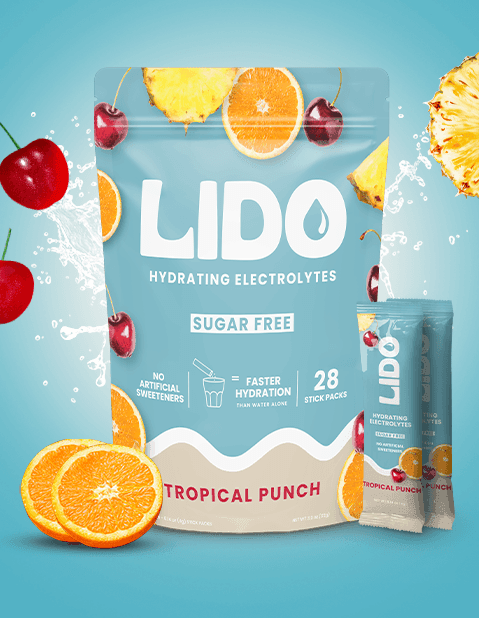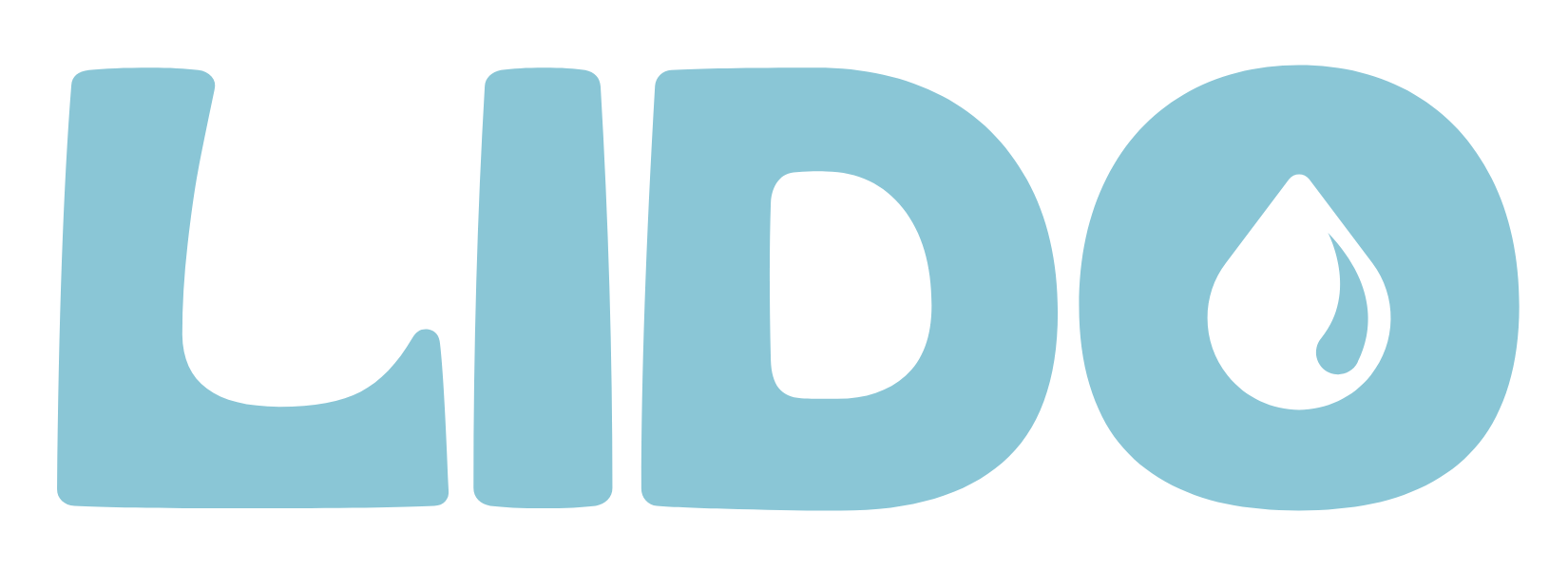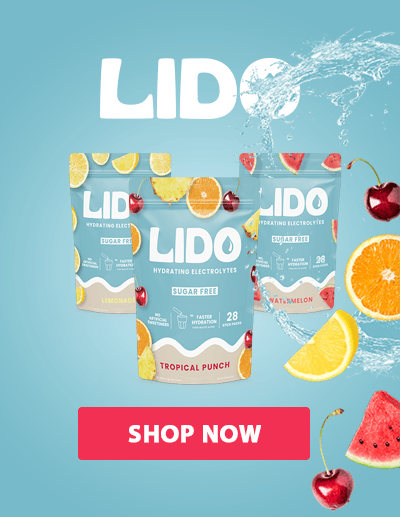Always Thirsty at Night? Here’s Why and What to Do About It
Jennifer DouglasShare

It’s finally bedtime—except now you’re feeling extra thirsty. You chug a glass of water (your third since dinner), but hours into your sleep, you’re awakened by another wave of intense thirst. Sounds familiar? If so, you’re not alone.
Feeling parched at night is incredibly common, yet few understand why it happens. Often, it stems from correctable lifestyle factors like skimping on your daily hydration. However, trying to guzzle a day’s worth of fluids right before bedtime can “lead to multiple unwanted trips to the bathroom throughout the night, disrupting your sleep,” warns Dr. Andrew Foderaro, Assistant Professor of Medicine and Clinician Educator.
So, how do you prevent those middle-of-the-night water cravings? And what makes us feel so thirsty in the first place? In the following sections, we’ll uncover the mysteries of this nighttime phenomenon that plagues so many of us, its common causes, and ways to address it for better health and sleep. But first, let’s discuss the concept of thirst.
The Science Behind Thirst
According to Dr. Margaret-Mary Wilson, a board-certified Internal Medicine Physician, thirst is “a strong desire or craving to drink liquid, usually associated with a feeling of discomfort.” It is usually our bodies’ way of telling us its fluid balance is getting out of whack, but it can also be driven by various non-physiological factors, such as habit, ritual, or how the beverage tastes, explains Professor in Gastroenterology Robin C. Spiller from the University of Nottingham, UK.
Our bodies must maintain a good ratio of liquids and electrolytes to function optimally. However, losing more fluids than we consume—whether through excessive sweating, illness, or not hydrating enough—throws off this delicate balance. This often causes several physiological changes like decreased blood volume, a rise in blood osmolality (concentration of electrolytes in the blood), and the release of antidiuretic hormones.
The body uses a complex and well-coordinated mechanism to detect and respond to these imbalances. The brain has specialized structures called the hypothalamus and forebrain, which collectively act as the brain’s thirst control centers. Receptors in these structures continuously monitor and respond to changes in blood osmolality, volume, and pressure. Others are stimulated by the release of vasopressin, an antidiuretic hormone that causes the kidneys to retain more water. Once these thirst receptors sense any of these changes, they send signals the brain perceives as thirst, creating an urge to find and consume fluids.
Why Do We Get So Thirsty At Night?
A few things might explain why you feel so thirsty at night. Let’s examine the five most common ones.
1. Not Drinking Enough During the Day
Many of us are guilty of it, and it’s the most likely reason for waking up in search of water in the middle of the night—not consuming enough fluids during the daytime.
Staying adequately hydrated isn’t always easy, as our schedules often keep us busy, and hydration takes a back seat. However, it inevitably catches up on us in the evening or nighttime. After all, you lose eight to 12 cups of fluids daily through breathing, sweating, bowel movements, and urinating—and even more with exercise, working in hot environments, or being highly active. Then, by bedtime, you’ve likely gone hours without fluids, leaving your body craving hydration overnight (a state known as hypohydration).
Most mistake the hypohydration for being dehydrated, but dehydration is the process of losing fluids, while hypohydration is the outcome of being dehydrated. Then again, sometimes your body senses the impending hypohydration before it fully sets in and creates thirst signals to prevent complete dehydration while sleeping.
2. Dietary Choices Before Bedtime
As much as inadequate daytime hydration may be to blame for nighttime thirst, your pre-bedtime diet also plays a significant role. For instance, “Excessive thirst is a common response to eating salty foods and naturally leads to an increase in fluid consumption, causing excessive urination,” explains Olivia Burley, a Registered Associate Nutritionist.
This is not to say that sodium is bad. In fact, many people don’t consume enough of it or often try to cut it from their diets. While this might be prudent, especially if you have high blood pressure or want to prevent it, there might be risks to consuming too little sodium. Getting just the right amount of sodium supports certain critical functions in the body; it’s just that excess amounts raise issues like nighttime thirst.
Also on the list of “What to Avoid Consuming Before Bed” are beverages like alcohol, caffeine, and sugary drinks. Why? Because they act as diuretics, causing you to urinate more frequently and lose more fluids. Spicy foods are another culprit. If the lost fluids aren’t replenished fast enough, it could dehydrate you. Of course, it will depend on how much you consume and your overall fluid intake.
3. Medications or Health Conditions
There’s one thing most medications have in common: side effects. And sometimes, excessive thirst or a dry mouth is one of them. Certain prescription drugs classified as diuretics (like blood pressure meds), antidepressants, blood glucose-lowering drugs (SGLT-2 inhibitors), and non-steroidal anti-inflammatories are linked to frequent urination, says GoodRx. Peeing more means more water being expelled from the body, which, if not replaced, can increase your chances of dehydration and thirst.
In the same way, some medical conditions, particularly those that alter the body’s water and electrolyte balance, can also increase your risk of dehydration and trigger excessive thirst. These conditions include:
- Diabetes
- Kidney, Heart, and Liver Disease
- Addison’s, Celiac, and Alzheimer’s Disease
- Gastroenteritis
- Sjögren’s Syndrome
- Yeast infection (thrush)
- Stroke and nerve damage
If excessive nighttime thirst persists despite your best efforts to prevent it, talk to your doctor about it to see if any of your meds or an underlying condition could be the culprit.
4. Breathing Through Your Mouth
Another possible cause of nighttime thirst is mouth breathing, also known as xerostomia. Breathing through your mouth instead of your nose can dry out your mouth and throat over time. That’s because the nasal passages are designed to lightly humidify the air before it enters your lungs. Speaking of air quality, we also recommend having an air purifier in your home or office.
However, when you’re a “mouth breather,” that air goes directly into your respiratory system without being moisturized first. Aside from possibly affecting your oral health and releasing more stress hormones, a PubMed article explains that the constant draft of drier air from mouth breathing can evaporate saliva from your tongue, gums, and throat tissues, leaving you with that familiarly parched, sticky mouth feeling. Mouth breathing is common during sleep for people with sinus issues or who snore heavily.
5. Sleeping in a Dry, Overheated Room
Having little to no humidity in your bedroom can help keep you snug and comfy as you drift off into DreamLand. But at the same time, it could deplete your body’s fluid levels, leading to dry mouth and throat and outright thirst, according to Denver Health.
It turns out that breathing that super dry air can diminish your body’s hydration stores as you continually lose water through increased respiration. It can also sap moisture from your nasal passages and mouth, leading to more mouth breathing, which, as we explained earlier, increases the risk of dry mouth and dehydration. Not only that, sleeping in a room with dry air can also increase sweating, possibly losing more than you’re taking in.
Is It Normal to Feel Thirsty at Night?
If you’re fully hydrated, you shouldn’t constantly need to wake up to drink water—so long as it’s a couple of sips to wet your mouth rather than guzzling a bunch. While an occasional episode of nighttime thirst is perfectly normal, if it’s becoming a regular occurrence, it could be a sign of type 2 diabetes or other underlying conditions. In this case, you should consult your GP to rule out any health reasons.
Also, keep tabs on how often you visit the bathroom at night. It’s normal to get up to pee at night, but if it’s happening too regularly or you pass a lot of urine, it’s worth mentioning it to your doctor, as it could mean you have nocturia. They can evaluate if something more serious may be triggering that intense thirst and narrow it down to a possible cause.
What Can You Do To Reduce Nighttime Thirst?
The answer depends on what’s making you thirsty. But as long as you have a plan and stay disciplined, it’s possible to improve most cases of nighttime thirst. Here are a few helpful tips to help you do just that:
- Ensure you’re well-hydrated before bed. The best way to combat nighttime thirst is to stay ahead of it. That can mean carrying a reusable water bottle to hydrate on the go. How much you should drink depends on age, sex, activity level, and other factors. Speak to a specialist to help determine that sweet spot—and whatever it is, try drinking small amounts during the day instead of chugging it all at once before bedtime.
- Breathe through your nose. It sounds simple, but “nose breathing” can go a long way in staving off dry mouth and dehydration. As explained earlier, when you breathe through your mouth while sleeping, that continuous airflow causes the airways and mouth tissues to dry out quickly. Nasal breathing, on the other hand, helps humidify the inhaled air before it enters your body. So, try to inhale and exhale as much as possible through your nostrils.
- Optimize your sleep environment. The air you’re exposed to all night can increase sweating, trigger thirst, and even ruin sleep. A cool-mist humidifier adds moisture to the dry, heated indoor air to prevent excessive fluid loss. According to SleepFoundation.org, bedroom temperatures of around 65°F (18.3 degrees Celsius) are ideal, but most doctors suggest keeping the thermostat set between 65 and 68°F. Also, choose the right sleepwear and bedding to help maintain a comfortable body temperature while you sleep.
- Cut out diuretic beverages before bed. Drinks like alcohol, caffeine, and beverages high in sugar or salt act as diuretics, which rob the body of vital fluids needed to stay hydrated. Therefore, avoid consuming things like soda, coffee, or alcoholic drinks in the few hours before bedtime.
- Stay away from salty and spicy foods at night. Like diuretics, salty and spicy foods can make you extra thirsty at night by draining your body of vital fluids. Stick to blander foods in the evening to help prevent that intense after-hours thirst.
Why Drinking Water Alone Won’t Resolve Your Nighttime Thirst
If you’re struggling with excessive nighttime thirst, the most common piece of advice you’ll probably get is to “drink more water!” Staying hydrated is important, but water alone may not quench that intense overnight thirst. The reason has to do with electrolytes.
Your body loses electrolytes through respiration, sweating, or frequent urination, making it harder to maintain a balance of fluids inside and outside of the cells, warns Cleveland Clinic. So, while you may be drinking plenty of plain water, your body can only utilize and distribute it efficiently with ample electrolytes. Because of this, you’ll keep waking up with a parched, dry mouth no matter how much water you drank before bed.
To rehydrate fully, you must replace the lost fluids and electrolytes. It’s as easy as consuming electrolyte-packed beverages like sports drinks or water, using a zero-sugar electrolyte mix, or adding salt to your water before bed. Consuming more hydrating, electrolyte-rich foods like bananas can also do the trick.
Keep in mind, however, that upping your electrolyte levels won’t fix excessive and chronic thirst caused by an underlying medical condition like diabetes. However, for otherwise healthy people, correcting an electrolyte imbalance is often the key to relieving persistent nighttime thirst and feeling properly hydrated the next day.
Final Thoughts
As we’ve explored, feeling a sudden urge to hydrate at night is a common complaint—but an easily solvable one for many people. By understanding nighttime thirst and the factors that contribute to it, you’re better able to overcome most cases of it.
An excellent place to start is staying hydrated during the day, optimizing your sleep environment, avoiding consuming certain foods and beverages after hours, and using electrolyte mixes. If those don’t work, it could be a medication or underlying medical condition, so talk to your doctor if you suspect that’s the culprit.
Don’t forget to share this guidance with friends and loved ones in case they, too, are secretly struggling with after-hours thirst.





